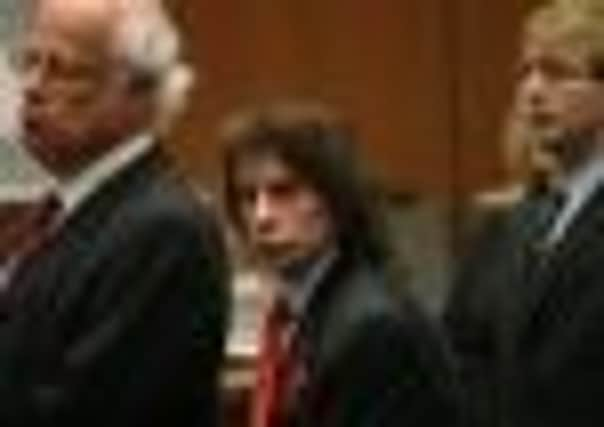Clarke pushes for cameras in the courtroom


Mr Clarke announced that broadcasters would be allowed to screen footage of judgments in England and Wales for the first time as part of “unprecedented plans to improve transparency”.
Filming has been forbidden in courts other than the Supreme Court since the Criminal Justice Act 1925 was passed by Parliament.
Advertisement
Hide AdAdvertisement
Hide AdMr Clarke said he wanted the ban removed quickly so cameras could be used firstly in the Court of Appeal and then in the crown courts, but it is understood that legislation is unlikely this year.
Only judges’ remarks are to be shown, he insisted. Speeches by victims, witnesses, offenders and jurors will remain off-camera.
The Government will consult on the plan to ensure it “does not hinder the administration of justice and that it protects victims, witnesses, offenders and jurors”, Mr Clarke said.
“But,” he added, “I am clear that this must not give offenders opportunities for theatrical public display.”
Advertisement
Hide AdAdvertisement
Hide AdThe idea of filming in courts has been supported in the past by senior legal figures including the Director of Public Prosecutions, Keir Starmer QC.
But critics suggested yesterday that the proposal could turn the justice system into a branch of reality TV, citing US show Judge Judy and the media circus that has accompanied trials in America for celebrities like OJ Simpson and Phil Spector.
Tory MP Roger Gale, a former television producer, said it risked providing a platform for “eccentric” legal professionals.
He added that screening Parliament had resulted in grandstanding by MPs and a concentration on “juicy” extracts at the expense of less entertaining debates.
Advertisement
Hide AdAdvertisement
Hide Ad“I believe that the televising of the closing speeches in law courts and the passing of sentences will create the same effect as thrusting barristers seek to impress the media with fee-improving performances and the more eccentric members of the judiciary use the TV platform to address the nation,” the MP said.
“The courts are supposed to be a place where justice is done and where it is, by those actually present and listening to the evidence, seen to be done.
“That must not be allowed to change. This is not about transparency or democracy, it is about television show business and we do not need our law courts to be turned into yet another reality TV show.”
Javed Khan, chief executive of Victim Support, also warned against the move, suggesting that cameras would put victims and witnesses under added stress.
Advertisement
Hide AdAdvertisement
Hide AdBroadcasters have campaigned for a law change for a number of years, but the only exception to the ban has been the Supreme Court, where cameras have been allowed to film proceedings for the past two years.
John Ryley, head of Sky News, which has been pressing for cameras in court, wrote an open letter to Mr Clarke last week calling for proceedings to be screened.
The public would have better understanding of controversial sentences if judges’ remarks had been televised, he said.
Max Hill QC, chairman of the Criminal Bar Association, said: “Criminal barristers have nothing to fear from increased public scrutiny, which can only demonstrate the quality and integrity of our profession. We do, however, have reservations about the potential broadcast of the trial process itself. Extracts shown in isolation may give a biased impression of a long criminal trial in which the jury have patiently listened to weeks or months of evidence fromboth the prosecution and defence. We must be cautious about placing any extra pressure on victims and witnesses, or exposing jury members to undue external influence.”
Advertisement
Hide AdAdvertisement
Hide AdPeter Lodder QC, Chairman of the Bar Council, said: “It is vital that the judiciary is consulted and that the welfare of victims, witnesses and jury members is taken into account. Any broadcasts must be in the public interest and in the interests of justice.”
Mr Clarke also announced plans to publish “an unprecedented level of information about the performance of courts” in an attempt to help the public better understand how their local courts are working. The Government will provide details of how many people have been convicted or released from prisons in each area and how often they re-offended afterwards.